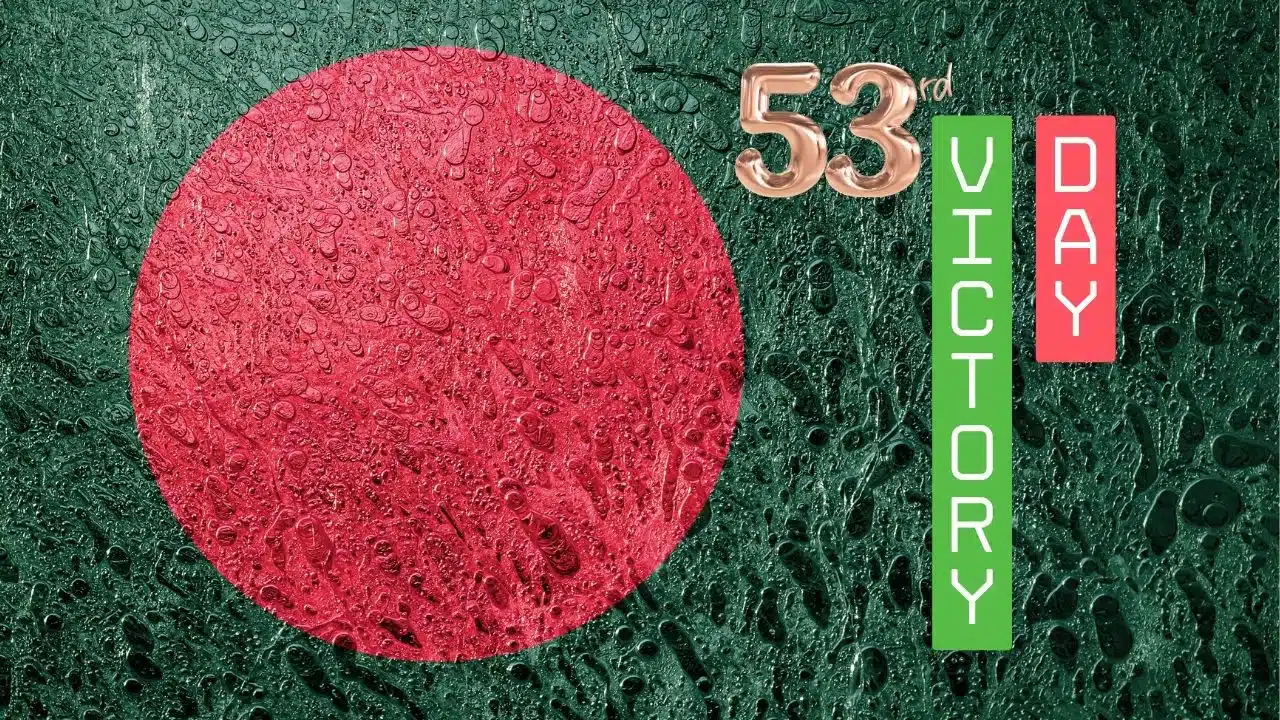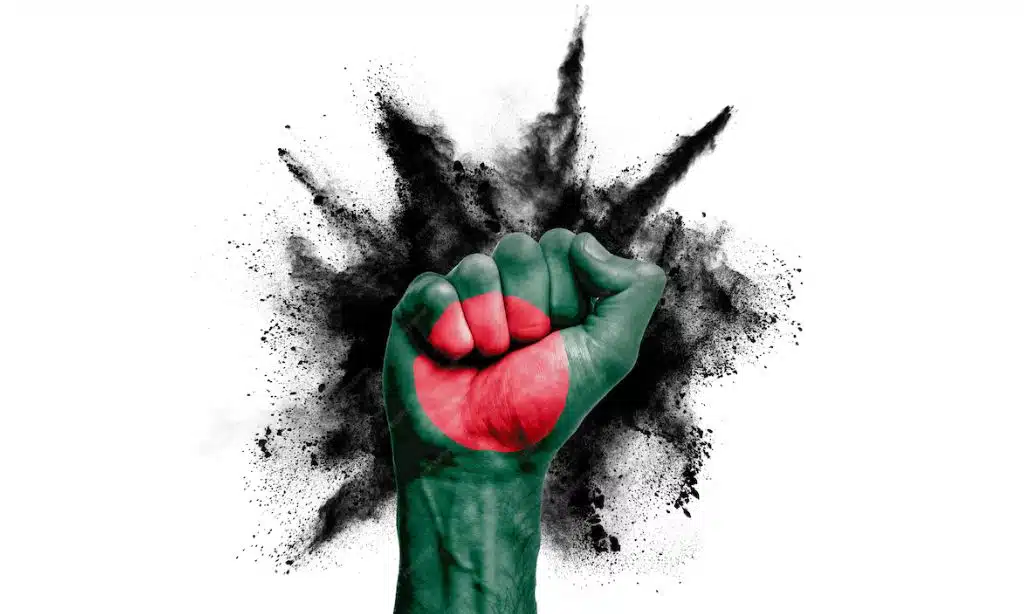Victory Day, celebrated on December 16, holds immense significance for Bangladesh, marking the day the nation achieved independence after a long and bloody struggle in 1971. Bangladesh’s journey from humble beginnings as a war-torn nation to a thriving middle-income country has been truly remarkable.
This year, as the country commemorates its 53rd Victory Day, it also reflects on its growing influence on the global stage. Over the decades, Bangladesh has emerged as a leader in areas like economic growth, climate advocacy, cultural contributions, and diplomacy.
This blog explores how Bangladesh’s legacy of resilience and innovation continues to make a global impact 53 years after its liberation. it also explores how the victory day of Bangladesh 2024 will be celebrated.
A Brief Historical Recap
The Liberation War of 1971 was a defining moment in the history of Bangladesh, as its people fought against oppression and injustice to secure their independence. The victory came at a high cost, with millions of lives lost and the country left in ruins. In the aftermath, Bangladesh faced immense challenges—poverty, political instability, and economic hardship.
Yet, driven by the indomitable spirit of its people, the country began to rebuild. From these early struggles, Bangladesh set its sights on carving out a unique identity and playing a meaningful role on the global stage.
Economic Rise and Contributions
Bangladesh’s economic transformation is a testament to its resilience and ambition. Over 53 years, it has risen from the shadows of war to emerge as a leader in global trade, innovation, and sustainable development.
From LDC to Emerging Economy
Over the past five decades, Bangladesh has transformed from a least-developed country (LDC) into a global success story. Its ready-made garments (RMG) sector has become the second largest in the world, providing essential clothing for millions and driving economic growth.
The country’s GDP growth rate consistently ranks among the highest globally, earning it recognition as a fast-growing economy with aspirations to become a developed nation by 2041.
Global Supply Chain Integration
Bangladesh plays a pivotal role in the global supply chain, especially in textiles and manufacturing. Its labor force and export-oriented economy have made it a trusted partner for countries worldwide. The rise of microfinance, pioneered by Nobel laureate Muhammad Yunus and Grameen Bank, has also positioned Bangladesh as a model for poverty alleviation globally.
Bangladesh as a Development Model
Beyond economic growth, Bangladesh’s innovative social programs have inspired other nations. The country’s success in reducing poverty, improving health outcomes, and achieving gender parity in education has been widely lauded by global organizations like the United Nations.
Diplomatic Influence
Bangladesh’s diplomatic achievements underscore its journey from a war-torn nation to a respected global player. Through peacekeeping, regional collaboration, and advocacy for human rights, the country has established itself as a voice for equity and stability on the world stage.
Peacekeeping Operations
Bangladesh is one of the largest contributors to United Nations peacekeeping missions. Its troops have played a critical role in maintaining peace in conflict zones worldwide, earning the nation respect and recognition as a reliable global partner.
Regional Leadership
Within South Asia, Bangladesh has emerged as a key player in regional organizations like SAARC and BIMSTEC. It has skillfully balanced relationships with major powers such as India, China, and the United States, ensuring its interests are protected while contributing to regional stability.
Global Advocacy
Bangladesh has also taken bold stances on global issues, including human rights, women’s empowerment, and education. Its efforts to highlight the plight of the Rohingya refugees and advocate for their rights have garnered international attention and support.
Climate Leadership
Bangladesh stands as a global beacon of resilience and action in the face of climate challenges. From championing international advocacy to pioneering sustainable solutions, the country’s leadership in climate initiatives underscores its commitment to a greener future.
Championing Climate Resilience
As one of the most climate-vulnerable countries in the world, Bangladesh has become a global advocate for sustainable development and climate resilience. It leads the Climate Vulnerable Forum (CVF), amplifying the voices of nations most affected by climate change.
Innovative Approaches
Bangladesh’s community-based adaptation models and disaster management strategies have been praised internationally. Its efforts in mangrove restoration in the Sundarbans and investments in green energy are examples of how the country is combating climate challenges with innovation.
Case Studies
Projects like the Coastal Embankment Improvement Program and the promotion of floating agriculture have been replicated in other parts of the world, showcasing Bangladesh’s ability to lead by example.
Cultural Contributions and Global Recognition
Bangladesh’s cultural footprint has steadily grown, reflecting its vibrant heritage and modern achievements. From literature to sports, the country’s identity resonates globally, enriching the world with its unique perspectives and creativity.
Art and Literature
Bangladesh’s rich cultural heritage continues to captivate the world. From the works of Nobel laureate Rabindranath Tagore to contemporary Bangladeshi writers, the nation’s art and literature have crossed borders and earned global acclaim.
Cuisine and Festivals
Bangladeshi cuisine, with dishes like hilsa curry and biryani, has gained international popularity. Festivals like Pohela Boishakh and Durga Puja are celebrated by diaspora communities, further promoting the country’s cultural identity.
Sports and Entertainment
Cricket has become a global ambassador for Bangladesh, with the national team achieving success on the world stage. Additionally, Bangladeshi films and music have started making waves internationally, adding to the country’s cultural impact.
Challenges on the Global Stage
Bangladesh’s impressive growth and global contributions come with unique challenges. As the nation pushes forward, it faces critical hurdles that demand resilience, innovation, and international collaboration to overcome.
Balancing Growth and Sustainability
As Bangladesh continues its economic ascent, it must ensure that growth is inclusive and sustainable. Bridging the gap between urban and rural areas remains a challenge.
Geopolitical Pressures
Navigating the complex geopolitics of South Asia requires careful diplomacy. Bangladesh faces the challenge of maintaining its sovereignty while fostering strong relationships with major powers.
Climate Vulnerability
Despite its resilience, Bangladesh remains highly vulnerable to rising sea levels and extreme weather events, requiring continued global support and innovation.
Looking Ahead: Bangladesh’s Vision for 2071
As Bangladesh looks ahead to its centennial in 2071, it aims to solidify its status as a developed nation. The previous government’s Vision 2041 plan outlines ambitious goals for economic growth, education, and technological innovation.
By continuing to lead in climate advocacy and global partnerships, Bangladesh is well-positioned to shape a better future for its citizens and the world.
Achievements of Bangladesh So Far
Bangladesh’s progress over the past 53 years is a source of immense national pride and inspiration for other developing nations. Here are some of its most notable achievements:
- Economic Growth: Transition from a least-developed country to a middle-income nation with one of the fastest-growing economies globally.
- Garment Industry Leadership: Becoming the second-largest exporter of ready-made garments, a key player in global supply chains.
- Microfinance Revolution: Pioneering microcredit through the Grameen Bank, a model replicated worldwide for poverty alleviation.
- UN Peacekeeping Contributions: Leading as one of the largest contributors to United Nations peacekeeping missions worldwide.
- Gender Parity in Education: Achieving significant gender equity in primary and secondary education.
- Climate Resilience Leadership: Founding and chairing the Climate Vulnerable Forum (CVF), advocating for global climate action.
- Cultural and Sporting Recognition: Gaining global acclaim through its literature, cuisine, and success in cricket.
- Infrastructure Development: Building megaprojects like the Padma Bridge, enhancing connectivity and economic opportunities.
- Population Control and Health Improvements: Substantially reducing child mortality rates and achieving notable progress in family planning.
- Diplomatic Engagement: Strengthening ties with global powers and emerging as a key voice in regional stability and human rights advocacy.
Takeaways
Bangladesh’s transformation from a war-torn nation to a globally influential nation is a testament to the resilience and determination of its people. On this 53rd Victory Day, the country not only reflects on its past but also celebrates its growing impact on the global stage.
As it continues to champion issues like climate resilience, economic innovation, and cultural heritage, Bangladesh serves as an inspiration for nations worldwide.
Victory Day reminds us all that the spirit of freedom and progress knows no boundaries. Let us celebrate Bangladesh’s achievements and look forward to its brighter future on the world stage.






































